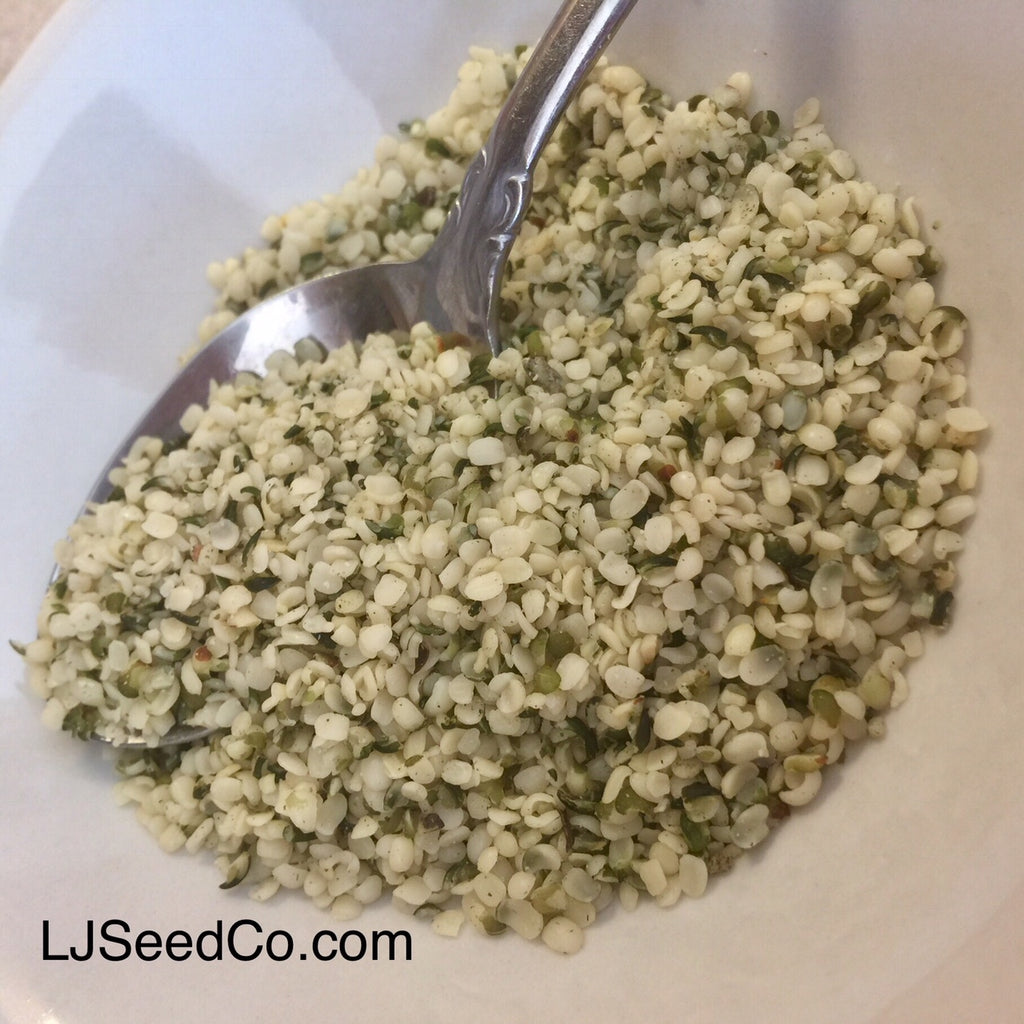Many think eating fats make you fat; not so. But by not eating proper fats, your body can actually become fat. Lack of proper fats can bring on inflammation. Inflammation is an ugliness that opens the door to many diseases. Inflammation can be the underlying culprit that causes aches and pains, high blood pressure, heart problems and a wide range of chronic issues.
I have the pleasure of meeting many of our customers face to face at vending events where we sell our hemp seed food products. It has been my experience that his whole thing about fats is confusing to many folks. Maybe its just the word "fat" that starts the confusion. It's important to understand, all fats are not created equal.
Many times when people go on a kind of simplified diet program that focuses on zero to low fats, BOOM! They end up in a jam. Often when the so-called fat is removed from a food, other stuff, like sugar is added increasing empty calories. (Don't even get me started on sugar, it's the other white, addictive powder killing people.) Fake stuff and/or artificial sweeteners can also be substituted making it even more harmful to the body. Worse yet, people are misinformed and they miss out on getting their much needed Essential Fatty Acids because they don't eat foods with good fats.
Essential Fatty Acids are vital for healthful body function. They're essential because the body can't make them so you must get them from the food you eat. Omegas are a subgroup of fatty acids (the good fats). The three major categories are, Omega -3, -6 and -9. Omega 3 and 6, are essential because the body cannot make them. You must get them from foods like fish, flaxseed, chia, avocado, vegetable oils and the almighty hemp seed. Omega 9, although needed, is not considered an essential fatty acid because our body can produce them.
Tossing big words around like alpha-linolenic acid (ALA), eicosapentaenoic acid (EPA), and docosahexaenoic acid (DHA). Gamma-linolenic acid (GLA) to identify fatty acids and tell you that ALA is found mainly in plant oils can be good information; but all this can make your head spin. Just take with you that you must get omegas 3 and 6 by eating them; and they're very important to include in your diet.
It's understandable that seeking out foods with balanced omegas can be difficult and confusing. I don't make the rules for nutrition fact labeling requirements, but I think it's a huge disservice that the U.S. nutrition facts do not include identifying the omega profile a food may provide. A food manufacture can put a tag line on a package stating omegas are in the food, but there is no suggested daily requirement or a percentage within the nutrition fact label to help guide people.
Compounding the problem, if a person is trying to pay better attention to what they're eating and making attempts to read the nutrition facts, fatty acids are not necessarily segregated from fats and they can be lumped into total fats, so people mistakenly avoid them.
Eating the right ratio of of omega -3, -6 and -9 fatty acids is important for good health. What’s cool is hemp seeds provide a perfectly balanced omega profile of 3, 6 and 9; giving your body the proper fats it needs for healthful body function!
There may be some folks out there who will argue this hemp seed testament. That's probably because most people tend to get too much omega 6 in their SAD (Standard American Diet). This does not negate the fact that the hemp seed is an excellent, well rounded, nutrient dense food choice, including omegas. #EatSomeHemp



Add a comment